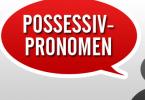The temperature of hot water in the tap according to the standard in 2020 is regulated by SNiP (building codes and regulations) N II – 34–76 and SanPiN 2.1.4.2496-09. These documents determine the quality of water supplied to residential buildings for household and drinking needs.
Inadequate tap water quality
In addition to the temperature, the hot water must comply with parameters such as cleanliness and pressure. What is the use of hot water if it runs in a thin trickle or is dirty? Increased pressure is also not a reason for joy: it entails breakage of couplings, valves and other elements of the water supply system.
For hot water, pressure limits are set from 0.3 to 4.5 atmospheres. Going beyond these boundaries is a direct reason for applying to the Criminal Code for recalculation.
Impurities in the aquatic environment can be both organic and inorganic origin: rust, entering the earth system, decaying wood, etc. If such cases are frequent and long-term, it is necessary to file a complaint with the water utility with a request to check the cleaning systems, which should be carried out in conjunction with the ZhEK.
How do I file a complaint?
A planned shutdown of hot water supply is carried out for the summer period to repair water supply networks, in case of accidents, equipment interruptions.
The law provides for a clear mechanism for the operation of utilities to calculate payments.
- The Housing Code of the Russian Federation of December 29, 2004 N 188-FZ establishes the criteria for the quality of the provision of housing and communal services.
- Federal Law of 07.12.2011 No. 416-FZ "On Water Supply and Wastewater Disposal" regulates legal relations in the field of water resources provision, lists the requirements for the quality and safety of water resources.
- Federal Law of 07.02.1993 No. 2300-1 "On Protection of Consumer Rights" defines the rules for interaction between sellers (performers), buyers.
- Decree of the Government of the Russian Federation of 05/06/2011 No. 354 "On the provision of utilities to owners and users of residential premises in multi-apartment" contains criteria for the quality of utilities (Appendix 1), the procedure for their payment, provision, responsibility of the parties (Articles 149-160), practice recalculation (Chapter 8).
- Decree of the Government of the Russian Federation of 26.2.2016, No. 1498 "On the provision of utilities and maintenance of common property in an apartment building" introduces some clarifications for resource supplying organizations and citizens.
- SanPiN 2.1.4.2496-09 "Hygienic requirements for ensuring the safety of hot water supply systems" names the hygienic requirements for the quality of resources, the organization of centralized water supply systems.
Is it legal to charge
Current legislation, the rules of contractual legal relations establish that money can only be charged for actually provided services. Therefore, the amount of payment for hot water supply during a planned long break is reduced by this amount.
The legislator has established the permissible duration of non-provision of hot water:
- a total of 8 hours per month;
- no more than 4 hours at a time;
- 24 hours in case of an accident on the highway.
The maximum DHW interruption period in summer can be two weeks. If the repair work is delayed, the issue of payment arises. It is performed for the entire time of the absence of the resource.
The issue of accrual may arise not only for residents who have not provided their plumbing systems with meters. If they are available, the citizen independently transmits the readings of metering devices, controls the correctness of their reflection in receipts. But when cold water flows from both taps, and the meter turns to hot, the fee must also be recalculated. To avoid such situations, it is best to turn off the riser during a break.
IMPORTANT! If there are no meters, then the accrual is made according to the standard, depending on the number of persons registered on the living space.
Should recalculation be done during a planned outage
Hot water should not be paid in full for a period of time longer than the allowable one, when the water temperature does not exceed + 40 ° C. At this time, the cost gradually decreases to the cold water tariff. If the receipt contains an incorrectly accrued amount for hot water supply, you need to apply for a recalculation.
In case of a planned shutdown for 14 days, the service fee is not charged. If the repair is delayed, and water does not exceed + 40 ° C from the tap, the payment for its consumption is equal to the cost of cold water.
How is it going
The recalculation is done up to complete exemption from payment for DHW.
IMPORTANT! With regard to the current break: every hour above the permissible shutdown, the size of the DHW board must be reduced by 0.15%.
If the restoration work is delayed, the total should be calculated according to the cold tariff.
The timing
The consumer will see the result of the recalculation in the receipt of the current month. If the amount remains the same, you need to contact the state supervisory authorities to protect your rights.
How to do it
If the water cut-off was done as planned, it turned out to be lengthy, or the emergency dispatch service accepted applications from residents, most often the cash settlement center (RCC) independently makes adjustments to the payment for the non-provided resource. If this does not happen, you must apply there with a corresponding statement.
Statement
The claim is sent to the management of the RCC, which is obliged to make accruals. The document must contain information:
- Full name of the head, name of the addressee organization.
- Full name, address of registration of the applicant.
- The title of the document is Application.
- Accurate data on non-provision of water: date, time, information on the presence or absence of metering devices. If they are available, then add the meter readings for water before and after the break. There should be links to an agreement with the UK or RSO.
IMPORTANT! Attach to the application a receipt with an excessively charged fee, an act on the provision of a poor-quality service, if it was drawn up, an extract on the absence of payment arrears, a document of ownership or a lease agreement.
What to do if refused
When the cash settlement center refuses to recalculate, it is necessary to involve public authorities in resolving the dispute.
It is necessary to send a written complaint to the State Housing Inspectorate and Rospotrebnadzor.
If this does not help, you can contact the prosecutor, and then resolve the dispute through the court.
As you know, the Rules for the Provision of Utilities, approved by the Decree of the Government of the Russian Federation of 05/06/2011 N 354 (hereinafter referred to as Rules 354), provide for a reduction in the cost of utilities in the event that the quality of services does not meet the established standards and in the event of interruptions in the provision of these same services exceeding the established duration. Let's try to figure out how the presence or absence of a utility meter affects the amount of recalculation.
The recalculations associated with the inconsistency of the quality of services with the established standards are not affected by metering devices for the volume of consumed services, there are no disputes in this matter.
Much more interesting is the question of how recalculations caused by interruptions in the provision of utilities should be made, depending on the presence / absence of metering devices for these utilities.
Practically throughout the entire territory of the Russian Federation, the following practice has developed: recalculations for the undelivered volume of utility services are provided to the owner / tenant of the premises only in the absence of an IPU. And in the case of the presence of the device, it is considered that the device during the period of non-provision of the service already shows zero consumption, thereby measuring the actual volume of consumption of the service, the cost of which is presented to the owner / tenant, whose premises are equipped with an individual metering device. For some reason, such a scheme for the provision of recalculations is considered fair and consistent with current legislation.
The logic of such "recalculators" is simple: a person must pay for the volume of the provided utilities. If he has installed the IPU, then the device will measure the volume, and it is necessary to issue an invoice for this volume. If there is no device, and the calculation is carried out according to the standard, then the volume of the actually consumed service must be calculated taking into account the interruption in the provision of this service, i.e. recalculate.
The adherents of this logic forget one essential point. The recalculation of the cost of KU aims not only to determine the payment for the actually consumed volume of the service, but also to some "penalties". After all, the peculiarity of public services is that it should be available at all times! Any apartment owner / tenant has the right to count on water flowing from the tap when the valve is turned. And if this water does not flow, i.e. the service is unavailable, then not only the fee for this service should be canceled, but also some "damage" caused to the conscientious consumer should be compensated.
This is precisely the kind of logic that is confirmed by legislation!
Clause 98 of Rule 354 establishes: “When providing a consumer ... a utility service in the billing period ... with interruptions exceeding the established duration, as well as during interruptions in the provision of utility services for carrying out repair and maintenance work within the established duration of breaks, the amount of payment for such a utility service for billing period is subject to decrease up to the complete exemption of the consumer from payment such a service ... ".
What does “up to full exemption from payment” mean? Indeed, being guided by the logic of the absence of recalculations in the presence of an IPU, it is obvious that a complete exemption from payment can only be with zero service consumption (according to the IPU). If the device shows at least a liter of water, then this water must be paid.
And when are “normative officers” exempt from payment (who does not have an IPU)? It is logical to assume that they are exempt from payment when during the billing period the service was not provided at all!
What does Rule 354 say about this?
The aforementioned clause 98 of Rules 354 reads: "... the conditions and procedure for changing the amount of payment for utilities in the provision of utilities of inadequate quality and (or) with interruptions exceeding the established duration are given in Appendix No. 1 to these Rules ...".
We open Appendix 1. We see that in case of interruptions in the provision of any type of utility service over the established limit, a recalculation is carried out in the amount of 0.15% for each hour of such an excess.
And the limit on the duration of breaks is set, I must say, not high. For cold water supply, hot water supply, sewerage - 8 hours per month (in total), for gas supply - 4 hours per month (in total), for heating and electricity supply - 24 hours per month (in total).
Let's look at an example. Cold water was turned off in the house. Let it happen in a month with 30 days. There was no water for 29 days. On the thirtieth day, they gave water, and people began to wash, wash everything around, etc. In general, they consumed water in a volume that was many times higher than their usual consumption. Then all tenants applied for a recalculation.
And here is the recalculation for the "normative officers":
The break in the provision of cold water supply was 29 days X 24 hours = 696 hours. The allowed break is 8 hours. For each hour over the allowable break, it is necessary to reduce the fee by 0.15%. In total, the fee will decrease by (696 - 8) x 0.15 = 103.2%! Those. there will be just a case of "complete exemption of the consumer from payment."
And the “happy” owners of the IPU will be told: “And you have turned up two cubic meters of meters for this very one day! Excuse me to pay! " Let's not be surprised at the "injustice", in the majority of the Criminal Code and the Republic of North Ossetia, in response to all our indignations, they will reasonably remark: "Law and justice are different things!" And they will be right, but not in this case.
Let's not talk about justice and immediately turn to the law.
Once again, carefully read paragraph 98 of Rules 354 ( we will quote it in full):
« 98. When providing in the billing period to the consumer in a residential or non-residential premises or for general house needs in an apartment building a communal service of inadequate quality and (or) with interruptions exceeding the established duration, as well as during interruptions in the provision of communal services for carrying out repair and preventive work in within the established duration of breaks, the amount of payment for such a utility service for the billing period shall be reduced until the consumer is completely exempted from paying for such a service.
Requirements for the quality of utilities, permissible deviations from these requirements and the permissible duration of interruptions in the provision of utilities, as well as the conditions and procedure for changing the amount of utility fees for the provision of utilities of inadequate quality and (or) with interruptions exceeding the established duration, are given in the appendix No. 1 to these Rules.
If, in accordance with these Rules, the amount of the payment for the utility service for the billing period is not finalized and is subject to further adjustment, then the amount of the reduction in the utility bill for such billing period cannot exceed the finally charged amount of the payment for the corresponding utility service for such billing period. "
So, as we can see, there is no mention of the dependence of recalculation on the presence or absence of a counter!
Those. for a break in the provision of utility services to the owners / tenants of premises equipped with an IPU, it is necessary to recalculate! There can be no other interpretation of clause 98 of Rules 354!
The question immediately arises - how, then, to apply paragraph 99 of the same Rules 354? After all, it directly states: “ In case of interruptions in the provision of utility services exceeding the established duration, as well as in case of interruptions in the provision of utility services for carrying out repair and maintenance work within the established duration of interruptions, the amount of payment for such utility service, calculated in the absence of a collective (common house), individual or common (apartment) metering device of the corresponding type of utility resource is reduced by the amount of payment for the volume of non-provided utility services».
What does it mean? Does paragraph 99 contradict paragraph 98? Or clarifies it?
In fact, there is no contradiction or clarification. Clauses 98 and 99 are also applicable. And they are talking about two different recalculations.
Clause 99 just establishes the obligation to make the type of recalculation, which is mainly used now. This recalculation is associated with a decrease in the payment for the cost of the undelivered utility service. In this case, we are really talking about determining the actually consumed volume of the service. Consequently, for premises equipped with metering devices, this volume is determined by the IPU, and recalculation is not required, but for rooms not equipped with an IPU, the actually consumed volume must be calculated, namely, to reduce the standard value by an amount proportional to the duration of the interruption in the provision of services for billing period. This is the procedure established by clause 100 of Rule 354.
And here p. 98 establishes "penalties" for service interruptions. And these "sanctions" are applied regardless of the presence / absence of metering devices.
Thus, recalculations for interruptions in the provision of CU are made as follows:
1. For premises not equipped with IPU:
1.1. On the basis of clause 99 of Rules 354, the volume of consumed KU must be reduced. The procedure for calculating the volume by which the volume established by the consumption standard is to be reduced is given in clause 100 of Rules 354.
1.2. On the basis of clause 98 of Rules 354, the payment for consumed CU is reduced (in the amount reduced on the basis of clause 99) in accordance with Appendix 1 to Rules 354.
That is, first, the actual volume of the consumed service is determined (by reducing the consumption rate), then the cost of this actually consumed volume is reduced by 0.15% for each hour of exceeding the permissible duration of the interruption in the provision of CU.
2. For premises equipped with IPU:
2.1. On the basis of clause 98 of Rules 354, the payment for consumed KU is reduced (in the amount determined by the IMU) in accordance with Appendix 1 to Rules 354.
That is, the actual volume of the consumed service is determined by the IPU, then the cost of this actually consumed volume is reduced by 0.15% for each hour of exceeding the permissible duration of the interruption in the provision of CU.
I repeat once again: the recalculation for a break in the provision of utility services exceeding the permissible duration, in accordance with Rules 354, is provided all consumers, regardless of the presence or absence of utility metering devices
continuation of the topic of recalculations




